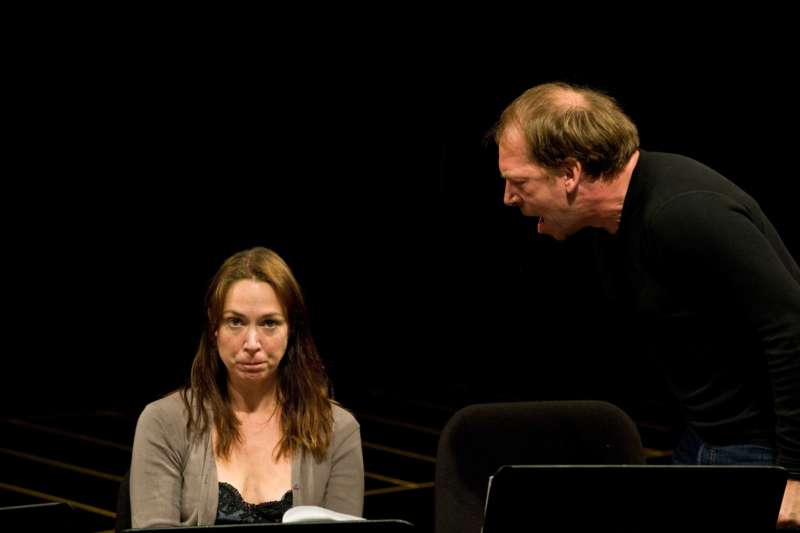Open to Public
Job in Long Island
Sat, Nov 16.2013
About the play
-
The Book of Job by Translated by Stephen Mitchell
The Book of Job is an ancient Hebrew poem that timelessly explores how humans behave when bad things happen to good people. At the beginning of the poem, Job, a righteous and prosperous man, is tested by God. In the span of one day, he loses everything—his children, his crops, his livestock, his house, and his health. Convinced of his own innocence, Job sits silently in the dirt behind what's left of his home and asks God for an explanation. But God doesn't answer. Job is visited by a group of friends who, at first, sympathize with his suffering, but when Job begins to question why he has been singled out and made to suffer, they condemn his behavior and accuse him of having done something to deserve his terrible fate. In spite of these accusations, Job clings to the belief that he has done nothing wrong and continues to shake his fists at the sky in righteous indignation. At the very end of the poem, God reveals himself to Job as a disembodied voice within a whirlwind and rebukes him for presuming to understand His will. Job covers his mouth and falls silent, and—in an enigmatic ending—God restores his health and prosperity, doubling his children, his livestock, and his crops.
Explore Projects
-
 Addiction & Substance AbuseAddiction Performance Project
Addiction & Substance AbuseAddiction Performance ProjectDesigned to raise awareness about opiate addiction and alcohol abuse, the project is intended to promote dialogue about helping those who are struggling with addiction.
-
 War & Mental HealthTheater of War
War & Mental HealthTheater of WarRooted in discussions about the invisible and visible wounds of war, the company’s hallmark project is designed to increase awareness of psychological health issues, disseminate information on available resources, and foster greater community cohesion.
-
 Domestic ViolenceMedea
Domestic ViolenceMedeaMedea timelessly depicts how scorned passion can lead to revenge and, sometimes, unthinkable violence. This project, which premiered at the Brooklyn Academy of Music in June 2016, delves into under-discussed mental health issues that affect women and their families.